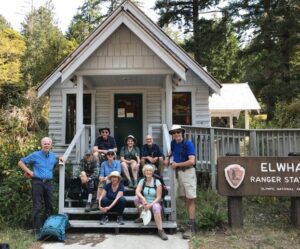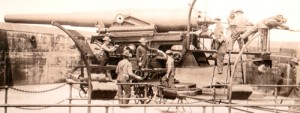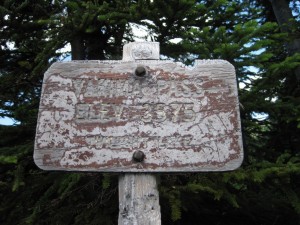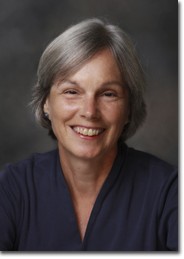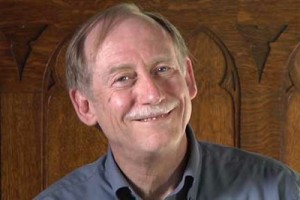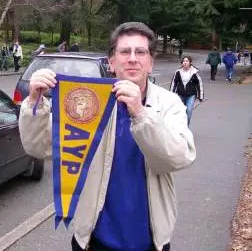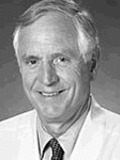2024
February 22, 2024 – The Evolution of the Northwest Passage as a Cartographic Image.
Using historic maps drawn from the collections of the Washington State Historical Society, the Washington State Library, and the Library of Congress, David Nicandri discussed the history of the Northwest Passage with a particular emphasis on how the western portal for same evolved between 1753 and 1853. His presentation drew on mid 18th century speculative depictions of the northwest quadrant of continent, plus charts associated with a variety of explorers including James Cook, George Vancouver, Alexander Mackenzie, Lewis & Clark, and others.
Here’s a link to David Nicandri’s talk.
January 25, 2024 – What’s Up With Research?
Everyone talks about research, but what does that mean, and what’s happening locally? Anne Jenner, Curator of the Pacific Northwest Collection at University of Washington Special Collections, Anna Elam, Library Collections Manager at the Museum of History and Industry, and Ann Ferguson, Curator of the Seattle Collection at the Seattle Public Library shared with us information about what types of research are happening in their collections. It was an evening of inspiration and ideas, and they shared an insight into what’s hot in history.
Here’s a link to the “What’s Up With Research” panel discussion.
2023
November 30, 2023 – Pacific Northwest History Award meeting at the Cascadia Art Museum in Edmonds, Washington
The Guild awarded its 2023 Pacific Northwest History Award to art historian and curator David F. Martin. The award presented to Martin recognizes “his lifetime of efforts to document and preserve, and help draw public attention to, the reputations and works of so many forgotten, unrecognized and under-represented Pacific Northwest artists, including his numerous scholarly writings and books, his many years as a principal of Martin-Zambito Fine Arts and his significant work as curator of the Cascadia Art Museum.” The award also includes a lifetime Guild membership.
October 26, 2023 – Heartbreak City: Seattle Sports and the Unmet Promise of Urban Progress
Shaun Scott spoke about his forthcoming book, Heartbreak City: Seattle Sports and the Unmet Promise of Urban Progress. In his book, he takes the reader through 170 years of Seattle history, chronicling both well-known and long-forgotten events, and uncovers how sports have both united Seattle in pursuit of triumph and revealed its most profound political divides.
August 19, 2023 – Hike to the Glines Canyon Overlook
Judy Bentley, former Guild president and co-author of Hiking Washington’s History, led a hike to the Glines Canyon Overlook. The walk ended at the overlook of the former dam site on the Elwha River. All along the hike, Judy recounted the history and natural history of the area.
May 18, 2023 – Annual Business Meeting and Stomp & Shout – The Untold Story of Early Northwest Rock ’N’ Roll
Peter Blecha told the story of music in the Pacific Northwest from the 1940s to the 1960s, a golden era that shaped generations of musicians to come, offering highly entertaining firsthand accounts gleaned from hundreds of interviews. There is unfortunately not a recording of this lecture.
April 27, 2023 – Pushed: Miners, a Merchant, and (Maybe) a Massacre
Stehekin author Ana Maria Spagna explored the so-called Chelan Falls Massacre. In this talk, Spagna described her research into the event including encounters with historians, archaeologists, Indigenous elders, migrant workers, and descendants of “Gold Mountain sojourners.” She explored the phenomena of historically ignored and “fake” massacres in attempt to discover what really happened to these Chinese miners.
Here’s a link to the talk, Pushed: Miners, a Merchant, and (Maybe) a Massacre. Click here to buy Ana Maria Spagna’s Pushed.
March 23, 2023 – Turning Research into Fiction with Robin Oliveira and Kirby Larson
New York Times bestselling author Robin Oliveira and 2007 Newbery Honoree Kirby Larson talked about what it is required to turn historical facts to historical fiction and how they balance historical accuracy and creative writing. Thought provoking and insightful, both authors also compared notes on their processes, opening our minds to yet another way to share history.
Here’s a link to Turning Research into Fiction.
February 23, 2023 – Biking Uphill in the Rain with Tom Fucoloro
Tom Fucoloro, Founder and Editor of Seattle Bike Blog, discussed the history chapters of his upcoming book Biking Uphill in the Rain: The Story of Seattle from behind the Handlebars, due out from UW Press in August 2023. Biking has been part of Seattle’s culture since the days when someone riding through the woods beyond Capitol Hill might encounter a bear. In addition to uncovering long-lost figures and stories from the city’s early biking history, Tom’s research also places bicycling within the context of the rapidly growing city. We apologize that there is not a recording of this event.
January 26 – 7pm – Reclaiming the Black Past with Quin’nita Cobbins-Modica
Quin’Nita Cobbins-Modica discussed aspects of her research and provided overall insights into the importance of studying black women in the region, including the ways that her engagement in the digital humanities (through Blackpast.org) seek to make this history more visible and accessible to broader publics.
Here’s a link to the recording of Reclaiming the Black Past.
2022
November 30 – 7pm- Live Membership Meeting- Mountaineers Seattle Program Center
At this in-person meeting, the Guild reported on its yearly activities and presented Pacific Northwest History awards to Karen Blair, Lawrence Kreisman, and Densho.
October 27- 7pm – The State of Small Museums
September 29 – 7pm – Trevor James Bond discusses Restoring Nez Perce Material Culture: Reparative Description and the Future of Archives and Museum Curation
Trevor James Bond, Associate Dean in the Libraries and the Director of WSU’s Center for Arts and Humanities, presented on the story of the Wetxuuwíitin’ Collection and the fate of other Nez Perce items held in museums and private collections. He explored a long-term collaboration between WSU and the Nez Perce Tribe to curate this and other collections on the Plateau Peoples’ Web Portal. On November 23rd, 2021, the Ohio History Connection (formerly the Ohio Historical Society) returned $608,100 to the Nez Perce Tribe. The reclamation of these Nez Perce artifacts is the subject of Bond’s book, Coming Home to Nez Perce Country, published by the WSU Press in 2021 and nominated for a 2022 Washington State Book Award.
Here’s a link to the recording with Trevor James Bond.
May 19: 6:45pm – Member meeting; 7pm – Program by Jim Rupp, The Unfortunate, but Encouraging, History of Native American Art in Seattle’s Public Spaces
This meeting began with a short membership meeting at 6:45 P.M., followed at 7:00 P.M. by Jim Rupp’s program. Jim Rupp is the Guild’s incoming president and the author of Art in Seattle’s Public Spaces (UW Press 2019). Jim’s talk focused on the use of totem poles and other Northwest Coast native forms from outside of the Puget Sound region, as symbols of Seattle; the appropriation of Native culture by white Seattleites in the twentieth century; and more recent focus on bringing to our public spaces contemporary works inspired by local Coast Salish culture.
Here’s a link to the recording with Jim Rupp.
April 28 – 7pm – Lowell Skoog and Northwest ski culture
Skiing historian Lowell Skoog spoke about his recently published book, Written in the Snows, a history of the past century of Northwest ski culture. Skoog’s book traces the development of skiing in Washington from the late 1800s to the present, covering the beginnings of ski resorts and competitions, the importance of wild places in the Olympic and Cascade mountains, and the friluftsliv, or open-air living spirit, of backcountry skiing.
Here’s a link to the recording with Lowell Skoog.
March 24 – 7pm – Richard Heisler on the Seattle’s Civil War legacy
Historian Richard Heisler talked about the more than 3000 Civil War veterans of the Seattle area, highlighting their rich and varied experiences in the war, as well as their intriguing lives and legacy.
February 24 – 7pm – Boosting the New West with John Putnam
Dr. John Putnam discussed his recent publication, Boosting a New West: Pacific Coast Expositions, 1905-1916, (https://wsupress.wsu.edu/
Here’s a link to the recording with John Putnam.
2021
December 2 – 7pm – Mike Bergman spoke on the history of Seattle’s streetcars.
Through narrative, maps, and previously unpublished photographs, author Michael Bergman delivered a detailed jaunt through Seattle’s fascinating streetcar era.
October 28 – 7pm – Dale Kutzera and Paul Hayden Kirk
Seattle author Dale Kutzera spoke about his work, Paul Hayden Kirk and the Rise of Northwest Modern, the first comprehensive account of the career of Pacific Northwest architect Paul Hayden Kirk (1914-1995).
September 23 – 7pm – Professor Alexandra Harmon presented her award-winning book, Reclaiming the Reservation.
Professor Alexandra Harmon spoke about her award-winning book, Reclaiming the Reservation: Histories of Indian Sovereignty Suppressed and Renewed, which delves into Quinault, Suquamish, and pan-tribal histories to illuminate the roots of Indians’ claim of regulatory power in their reserved homelands.
May 27 – 7pm – A Tale of Three Cities: Urban History, Settler Colonialism, and Indigenous Survivance
University of British Columbia professor Coll Thrush delivered A Tale of Three Cities: Urban History, Settler Colonialism, and Indigenous Survivance in Seattle, Vancouver, and Victoria. Thrush emphasized that the story of urban development in Cascadia is a story of dispossession, in which the rise of cities depended on the labor of Indigenous peoples, but also on their expulsion from “modern” civic spaces. Today, Indigenous peoples have continued to maintain connections to places within urban landscapes and assert sovereignty in both unceded and treatied spaces.
April 22 – 7pm – Pacific Dreams: Puget Sound, the Northwest Passage, and the Transcontinental Railroads
In his talk, Dr. Sean Fraga uncovered the long history of transpacific trade through Puget Sound and showed how interest in trade with Asia first brought European explorers and American settlers to the Pacific Northwest. Dr. Fraga argued that an enduring American obsession with Asian trade shaped Puget Sound as a commercial center across more than two hundred years.
March 25 – 7pm – Speakers from the Newcastle Historical Society discussed The Coals of Newcastle.
Speakers from the Newcastle Historical Society talked about their new book, The Coals of Newcastle – A Hundred Years of Hidden History.
February 25 – 7pm – David B. Williams presented Puget Sound: A Maritime Highway.
In this talk, which is based on research for his next book, Homewaters: A Human and Natural History of Puget Sound, Williams explored the 13,000-year history transportation in this extraordinary waterway to illustrate how landscape has a central influence on the residents of a place and how they live their lives.
January 28 – 7pm – Megan Churchwell presented A Whirlwind History of the Puget Sound Naval Shipyard.
Megan Churchwell, curator of the Puget Sound Naval Museum, explored more than 125 years of the Puget Sound Naval Shipyard’s history, from its establishment to its modern role as an aircraft carrier homeport.
2020
December 3 – 7pm – Eric Wagner spoke about his book, After the Blast, The Ecological Recovery of Mount St. Helens.
Eric Wagner shared a fascinating look at Mount St. Helens through the blast area and beyond and how scientists began to think in new ways about how life responds in the face of seemingly total devastation.
October 21 – 7pm – Clay Eals and Jean Sherrard discussed their Seattle Now & Then column.
Jean Sherrard and Clay Eals shared stories about their long-running Seattle Now & Then column. Created by Paul Dorpat in 1982, the column has been delighting readers of the Seattle Times Sunday magazine with glimpses of history for decades.
September 24 – 7pm – Author BJ Cummings spoke about “The River that Made Seattle.”
The Guild’s first virtual meeting. Great presentation this evening from BJ Cummings about the history of the Duwamish River on whose banks Seattle was founded! For more about the history behind BJ’s book check out her blog at https://duwamishhistory.com/.
To learn more about the river, its history, and its future, check out the following links including an initiative currently underway to rename parks along the river: (https://www.portseattle.org/NameIncredibleParks)
Learn more about the Duwamish tribe the river takes its name from (https://www.duwamishtribe.org/).
2016
December 1, 7:30 p.m.
Pulitzer-Prize winning journalist William Dietrich has updated and added a new introduction to Northwest Passage, The Great Columbia River. He will share with us the status of the mighty Columbia, the health of its salmon runs, the state of its dams, and the river’s growing importance in light of climate change.
October 27, 7:30 p.m.
Fred Brown, author of The City is More than Human, An Animal History of Seattle, will talk about his book published this month by the University of Washington Press. You may remember Fred’s talk about cows in urban spaces at a Pacific Northwest History conference when his research was in process.
September 22, 7:30 p.m.
A Guild September tradition—report on research. Guild members will gather to share the regional history topics they are researching and share resources. We will be joined by a librarian from the Seattle Room of the Seattle Public Library who will share the topics users of that room are pursuing and the gaps in research she sees.
July 30, 2016 – Annual History Hike: Yakima Pass with Judy Bentley. Join historian and author Judy Bentley for our annual history hike, this year to little-known Yakima Pass at the headwaters of the Cedar River. An ancient Yakama Indian trail goes through this pass which George McClellan surveyed in his 1853 search for a transcontinental railroad route through the Cascade Mountains. The hike is 5.2 miles roundtrip, with some elevation gain, going past Cottonwood Lake and Mirror Lake before joining the Pacific Crest Trail.
May 26, 2016 – Talk: “Those Mysterious Seacoast Forts: Homeland Defense the Old-Fashioned Way”, Dr. William Woodward, Seattle Pacific University, Ames Library Seminar Room (directions/parking below) 7 pm. Long nagged by memories of the only successful attack on our nation’s capital before 9/11/01, the British invasion of 1814, advocates for “homeland security” in the 1860s and 1870s turned to massive coast guns to protect the three American coasts. One of the first installations came at the mouth of the Columbia River; within a generation, Puget Sound had its own defenses. Now quaint state parks, these artifacts of a past obsession with “Never again!” raise fascinating questions about threats both imagined and real, and responses both psychological and tangible. I tell the tale of these silent sentinels as a virtual tour. What unfolds is the story both of America’s changing engagement with the world and its reliance on new technologies to “guarantee” security. Who knew that the massive disappearing guns at Fort Worden would lead to the electronic computer, or that inadequate manpower in the active Army would require augmentation by local reserve and National Guard units, leading to today’s “Total Force”?
The Seattle Pacific University Ames Library is located off 6th Avenue West, between W. Bertona and W. Dravus Streets on lower North Queen Anne hill.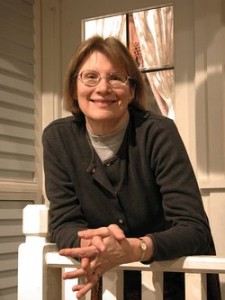
April 28, 2016 – Annual Membership Event and Business Meeting. Keynote Speaker : Lorraine McConaghy
Details can be found here.
2015
Tues. May 19 2015 6:30 pm. Talk – “Harry Truman, LBJ, Wilbur Mills and Ronald Reagan : The Politics of the Passage of the Medicare Act, on the 50th Anniversary.” Seattle Pacific University Otto Miller Science Bldg).
Medicare will be 50 years old on July 30, 2015. It is a very popular program with much of the US public. According to Dr. John Ryan, “Medicare has done amazing things for the medical-industrial complex. It was bitterly contested in the years leading up to the battles on the Congressional floor, in the White House and in the living rooms of American Citizens.” The cast of characters in this political battle are interesting: Harry Truman, JFK, LBJ, Wilbur Mills, and Ronald Reagan. Dr. Ryan will discuss the evolution of the bill and its transformation of American medicine. Come hear him talk about these political figures and the historic law they created.
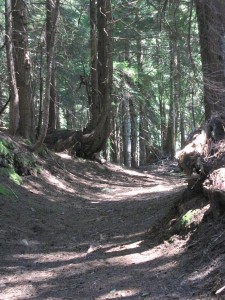
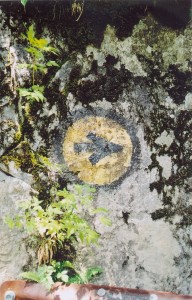
Saturday, July 25 2015 – Walk and history talk. Snoqualmie Pass vicinity.
